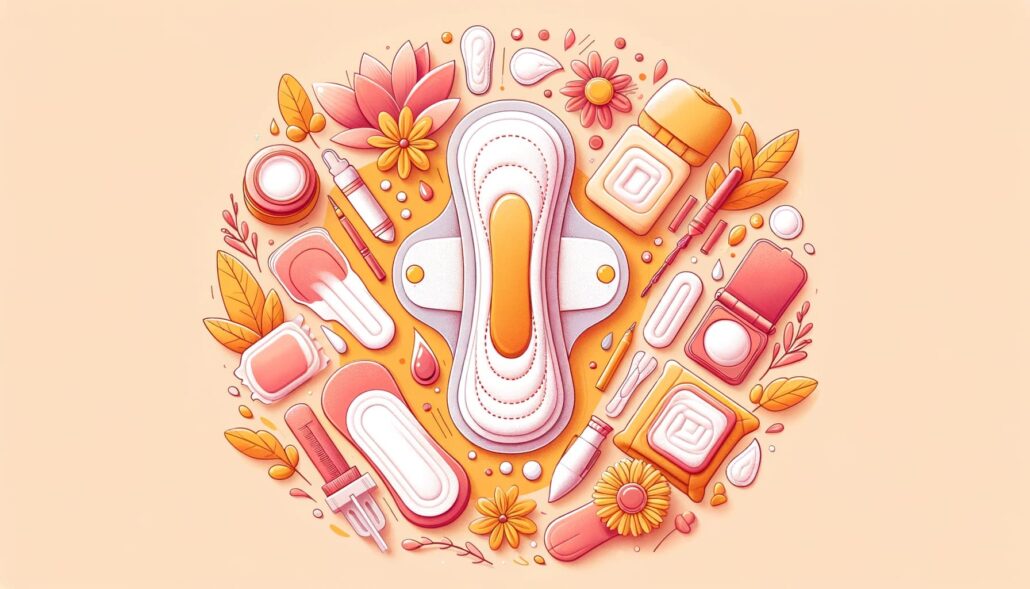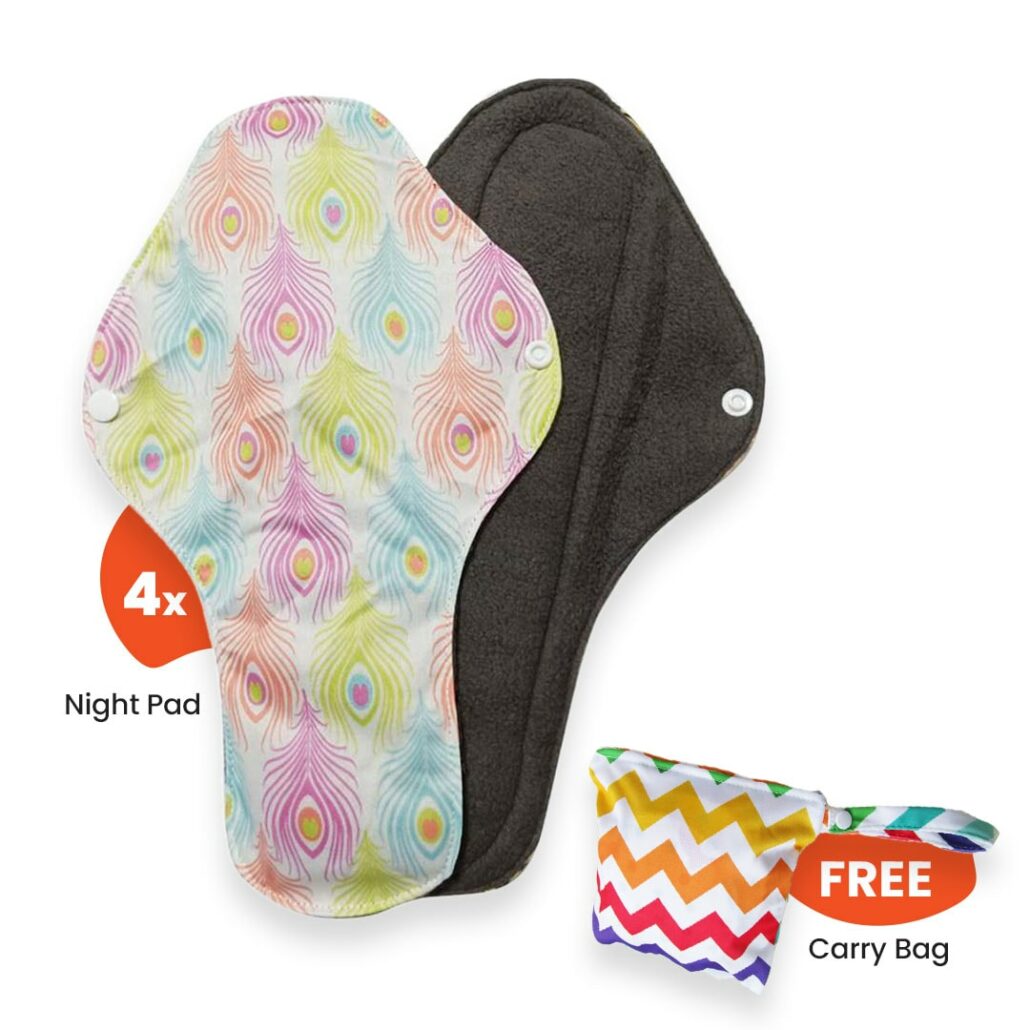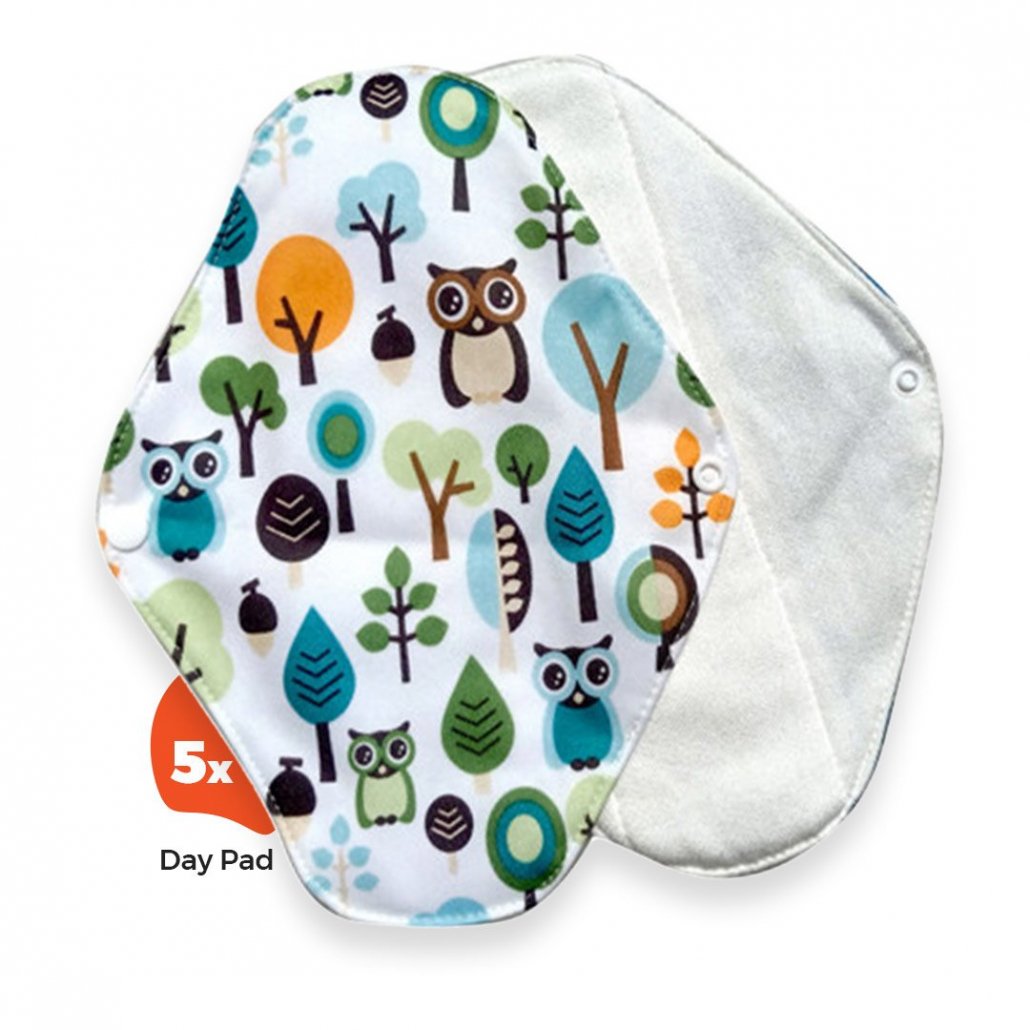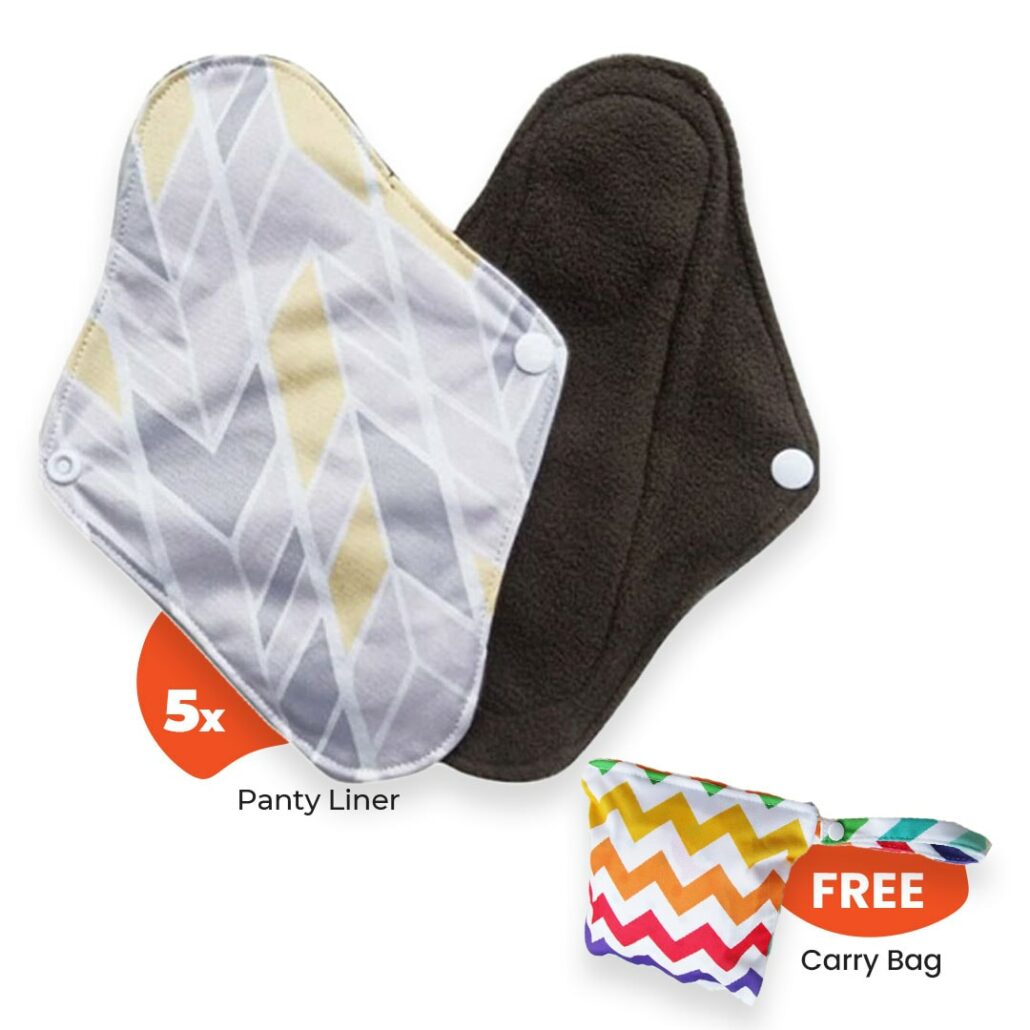Best Pads for Heavy Flow: Top Picks for Maximum Absorbency and Comfort
Seeking the perfect pad for heavy flow without the bulk? You’re in the right place.
Menorrhagia challenges our comfort and confidence, but we’ve got you covered.
We’ll explore the best pads for heavy flow, comparing types and styles to suit your lifestyle. This guide empowers you with choices for comfort, confidence, and sustainability.
Ready to transform heavy days into manageable ones? Let’s dive in.
Our Favorite Pads for Heavy Periods
Understanding Heavy Flow
When it comes to menstrual health, recognizing what constitutes a heavy flow is essential for managing our well-being effectively. To tailor our choice of menstrual products, it’s important to understand heavy flow, pinpoint its causes, and assess how to gauge your own menstrual bleeding.
Defining a Heavy Menstrual Flow
A heavy menstrual flow, also known as menorrhagia, is characterized by an excessive amount of blood lost during a period. Clinically, it’s defined as losing 80 milliliters or more of blood per menstrual cycle, or soaking through a pad or tampon every two hours.
| Flow Type | Blood Loss (ml) | Change Frequency | Description |
|---|---|---|---|
| Light | Less than 30 ml | Every 4-6 hours | Minimal; might only require liners or light pads. |
| Moderate | 30-60 ml | Every 3-4 hours | Manageable with regular pads or tampons. |
| Heavy | 60-80 ml | Every 2-3 hours | Requires super or high-absorbency products. |
| Very Heavy (Menorrhagia) | More than 80 ml | Every hour or double protection | Often requires medical consultation and possibly double protection methods. |
Common Causes of Heavy Menstrual Bleeding
Heavy menstrual bleeding can be the result of various underlying conditions, ranging from hormonal imbalances to more serious health issues. Some of the common causes include:
- Hormonal irregularities, particularly of estrogen and progesterone as seen in conditions like polycystic ovary syndrome (PCOS)
- Uterine fibroids or polyps, which are benign growths that can cause increased bleeding
- Blood clotting disorders like von Willebrand disease
- Certain medications, particularly anticoagulants and some anti-inflammatory drugs
Assessing Your Flow
To properly assess our flow, we need to pay attention to both the quantity and duration of bleeding. Journaling the frequency we need to change sanitary products and noting whether or not we experience any blood clots can help us, and our healthcare providers, better understand our menstrual health. If we frequently have to use double protection (such as both pads and tampons) or experience a menstrual flow lasting more than 7 days, it’s advisable to consult a healthcare professional.
Types of Pads for Heavy Flow

When managing a heavy flow, it’s crucial to know the different types of pads designed to provide the best protection and comfort.
Maxi Pads vs Regular Pads
Maxi pads are thicker and offer more absorbency than regular pads, making them a suitable choice for heavy menstrual flow. Their design focuses on capacity and coverage to prevent leaks, especially during the day when we are active.
Overnight Pads and Their Necessity
For uninterrupted sleep, overnight pads are longer and wider at the back to ensure protection while lying down. Their size and absorbency levels are tailored for long hours, making them an essential item in our nighttime routine.
Disposable vs Reusable Menstrual Pads
In the realm of pads for heavy flow, we have the option of choosing between disposable and reusable menstrual pads. Disposable pads are convenient and readily available, whereas reusable pads are eco-friendly and can be more cost-effective over time. Each type has unique features that cater to different preferences and lifestyles.
- Disposable Pad:
Offers one-time use with immediate disposal after use. Generally made with absorbent chemicals and materials. - Reusable Menstrual Pads:
Made from materials like cloth, which can be washed and reused. They are less irritating for some users and environmentally friendly.
Features of the Best Pads for Heavy Flow

When selecting pads for heavy flow, we look for features that ensure confidence and comfort. Features such as high absorbency, secure wing design, and quality materials are essential.
High Absorbency Levels
Pads designed for heavy flow need to have high absorbency to provide reliable protection. We typically find materials like gel-based cores which lock in fluid more effectively, reducing the chance of leaks. A pad that offers ample coverage and multiple layers can absorb a large volume of menstrual blood, offering peace of mind during the heaviest days.
Wing Features for Extra Protection
The inclusion of wings is a critical feature for those experiencing heavy menstrual flow. Wings provide an extra layer of security, ensuring the pad stays in place and further guards against leaks. They wrap around the underwear, minimizing side spills, especially when we are active or sleeping.
Materials and Comfort
The material of the pad directly impacts our comfort. For heavy flows, we recommend pads made with soft, hypoallergenic, and breathable fabrics, reducing skin irritation and allowing for better airflow. Some are made with organic cotton which provides a comfortable feel, while others might contain synthetic fibers that improve absorbency. Comfort should never be compromised, even on the days with the most flow.
Materials and Safety

When exploring options for managing heavy menstrual flow, we must consider both the materials used in pads and the safety of those materials. The choice between organic versus synthetic materials impacts not only comfort but also health, while understanding the implications of chemical content informs our purchasing decisions.
Organic vs Synthetic Materials
Organic materials, such as organic cotton, are grown without the use of pesticides or synthetic fertilizers, making them a safer and more environmentally friendly option. Pads made from organic cotton don’t rely on harsh chemicals for their production. In contrast, synthetic materials may contain various synthetic chemicals that could be harmful over long-term exposure.
The Importance of Chemical-Free Pads
Chemicals such as chlorine and bleach are commonly used in the production of traditional pads. These substances are potentially irritating and may pose health risks with prolonged contact. Pads that are labeled as chemical-free aim to eliminate these substances, providing us with a safer menstrual product.
Understanding Different Pad Materials
We find that the composition of pads can vary widely. Natural materials like bamboo are appreciated for their absorbency and breathability. On the other hand, conventional pads may use various synthetic fibers that offer strength and shape retention. It’s crucial for us to understand these material choices, as they directly affect the safety and comfort of our menstrual experience.
Pads and Sensitive Skin
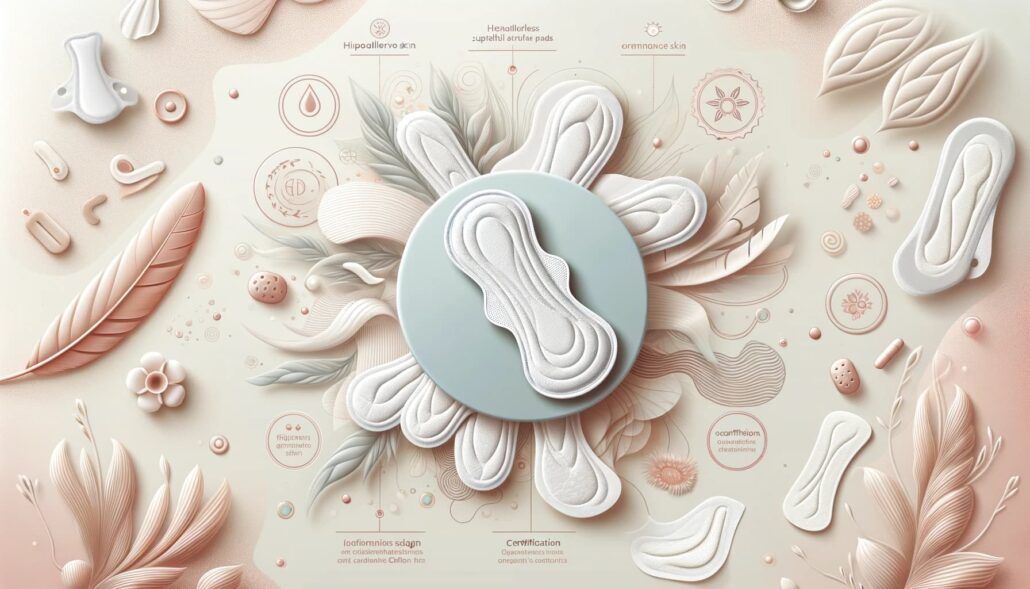
When it comes to managing a heavy flow, we understand the importance of finding pads that cater to sensitive skin. A pad’s materials and additives can make a huge difference in comfort and skin health.
Hypoallergenic Options for Irritation-Prone Skin
We recommend selecting hypoallergenic pads that are free from fragrances and dyes, as these can often lead to allergic reactions. For those with delicate skin, it’s crucial to choose pads explicitly designed to reduce the risk of irritation. Here are some key attributes to look for:
- Material:
Seek out organic cotton or bamboo materials, as seen in FLO Organic Bamboo Period Pads, which are typically gentler on the skin. - Certifications:
Look for pads with dermatologist-approved labels, indicating they’re designed with sensitivity in mind.
Benefits of Frictionless Pads
We’ve found that pads engineered to minimize friction can significantly enhance comfort for those of us with sensitive skin. Smooth, soft surfaces help prevent chafing, an important consideration when wearing a pad for several hours. The Topsy Daisy Super Pads are an excellent example as they utilize 100% organic bamboo which is known for its softness and lower tendency to create friction against the skin.
Remember, opting for pads with skin-friendly properties can make managing your period much more comfortable, particularly if you’re prone to sensitivity or allergic reactions.
The Role of Absorbency Features
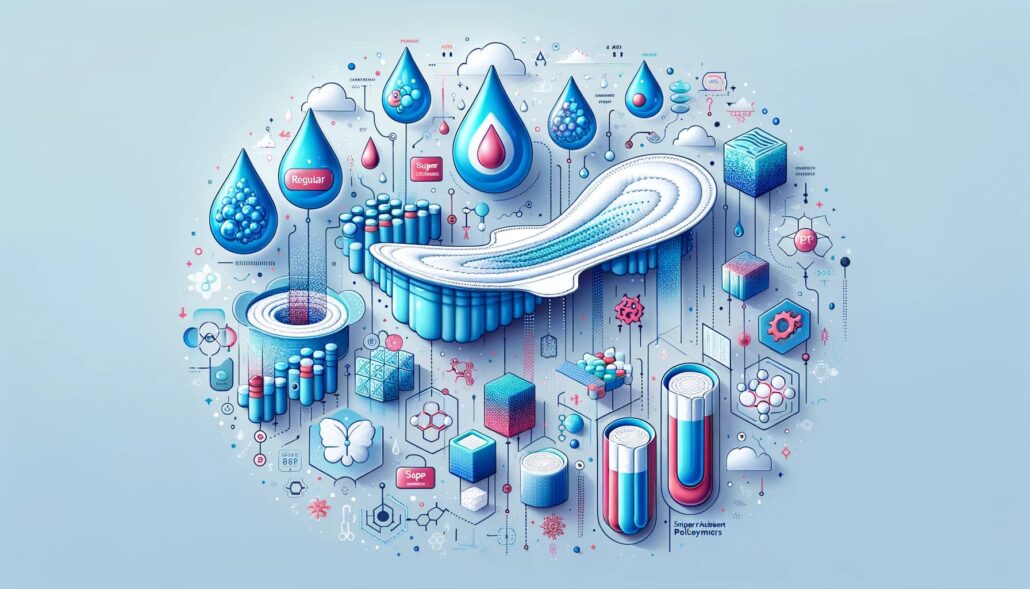
Absorbency is a critical factor in menstrual pads, particularly for those with heavy flow. We will explore the levels of absorbency available and recent technological advances that enhance the performance of these products.
Absorbency Levels for Different Flows
Regular:
Designed for light to moderate flow, absorbing up to 5 grams of fluid.
Super:
Holds 10 to 12 grams, suitable for moderate to heavy flow.
Plus:
Can absorb 12 to 15 grams, ideal for heavy flow.
It’s important for us to match our flow to the pad’s absorbency level. This ensures comfort and prevents leaks. We often need to switch to higher absorbency during the peak of our menstrual cycle.
Innovations in Absorbency Technology
Recent advancements include:
- Super Absorbent Polymers (SAPs):
These materials hold many times their weight in liquid, improving efficiency. - Thermo-Regulated Covers:
They wick moisture away, keeping us dry.
We also find pads with flexible wings that help pads stay in place, enhancing the overall absorbency capacity.
Additional Considerations

When choosing the best pads for heavy flow, we must look beyond absorbency and comfort. The significance of odor control and the environmental impact of the products we choose play a critical role in our overall menstrual care.
Odor Control and Its Significance
Odor control is a fundamental aspect of menstrual hygiene. Pads specifically designed with odor-neutralizing technology can provide not only physical comfort but also peace of mind. We understand that the presence of odor can be distressing; therefore, selecting pads that are infused with safe and effective odor-controlling substances is essential. Products incorporating bamboo charcoal or other natural deodorizers are especially valued for their ability to absorb and neutralize without relying on chemicals.
Eco-Friendly and Biodegradable Options
Our planet deserves care, just like our bodies. We’re witnessing a growing importance placed on eco-friendly menstrual products. As we advocate for health, we also encourage the use of biodegradable and compostable pads which contribute less to landfill waste after use. Here’s a quick breakdown of environmentally preferable features:
- Bamboo:
A renewable resource that is naturally biodegradable and eases the environmental footprint. - Cruelty-free certification:
Assuring us that no animal testing was involved in the product development. - Organic materials:
Reducing exposure to pesticides and promoting healthier ecosystems.
We emphasize the choice of products that marry functionality with sustainability. Biodegradable options may also be compostable, depending on the brand and the materials used, indicating they can break down into non-toxic components that can benefit the soil. This way, we take care of our menstrual needs responsibly.
Pad Size and Fit
When managing a heavy flow, we need to ensure that we’re using pads that not only absorb well but also fit comfortably. The right size and fit are crucial for preventing leaks, especially during high movement periods.
Finding the Right Pad Size
Size and shape play pivotal roles in the effectiveness of a pad. We recommend measuring from the front to the back of your underwear to determine the ideal length of the pad. A longer pad is generally preferred for a heavy flow to provide extra coverage and protection. For instance, the Topsy Daisy Super Pads are known for their extended length, which offers reassurance against leaks.
Movement and Activity Considerations
During physical activities, our movements can displace a pad that isn’t designed for motion. Therefore, we look for pads with strong wings that adhere securely to our underwear. A flexible pad, such as the Topsy Daisy Super Pad, can move with us and maintain its position. This is essential to avoid bunching and shifting, which might otherwise lead to uncomfortable situations.
Brands and Product Selection

When it comes to managing a heavy flow, the brand and specific product features of menstrual pads make a significant difference in comfort and protection. Our guidance focuses on identifying reliable brands and key features that are essential for heavy flow products.
Selecting the Right Brand
Selecting the right brand for heavy flow comes down to personal preferences and the specific needs of your cycle. Topsy Daisy are a standout choice for those prioritizing organic materials. With a commitment to non-toxic, high-absorbency materials, these pads demonstrate why selecting a brand with a dedication to both efficacy and health can lead to better menstrual care experiences.
For those seeking the best organic options, examining the brand’s use of natural components and their processing methods is crucial. Many brands claim “organic,” yet only a select few, hold certifications confirming their organic status, ensuring you’re getting a product free from pesticides and dyes.
Features to Look for in Brands
Here are some features we suggest keeping an eye out for when browsing brands for heavy flow pads:
- Organic Materials:
Organic cotton pads, like Topsy Daisy’s Maxi Pads, offer breathability and are free from chlorine bleaching and synthetic fibers. - Absorbency:
High absorbency is key, and pads like Topsy Daisy’s Super Pads Set are engineered specifically to handle heavy flows, offering peace of mind and leak protection. - Comfort:
Look for cotton cover pads which promote comfort, reducing irritation and providing a softer feel. - Eco-Friendly Practices:
Brands that prioritize eco-friendly practices not only benefit your health but also contribute positively to environmental sustainability. Organic pads in this category include those made with organic and biodegradable materials.
By focusing on brands with an established reputation for quality and the aforementioned features, we equip ourselves with the best tools to manage our menstruation effectively and comfortably.

